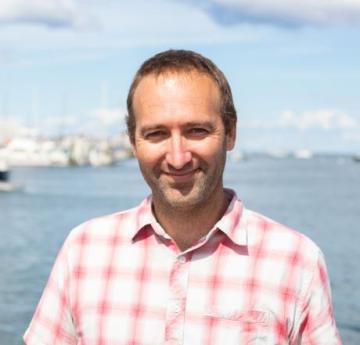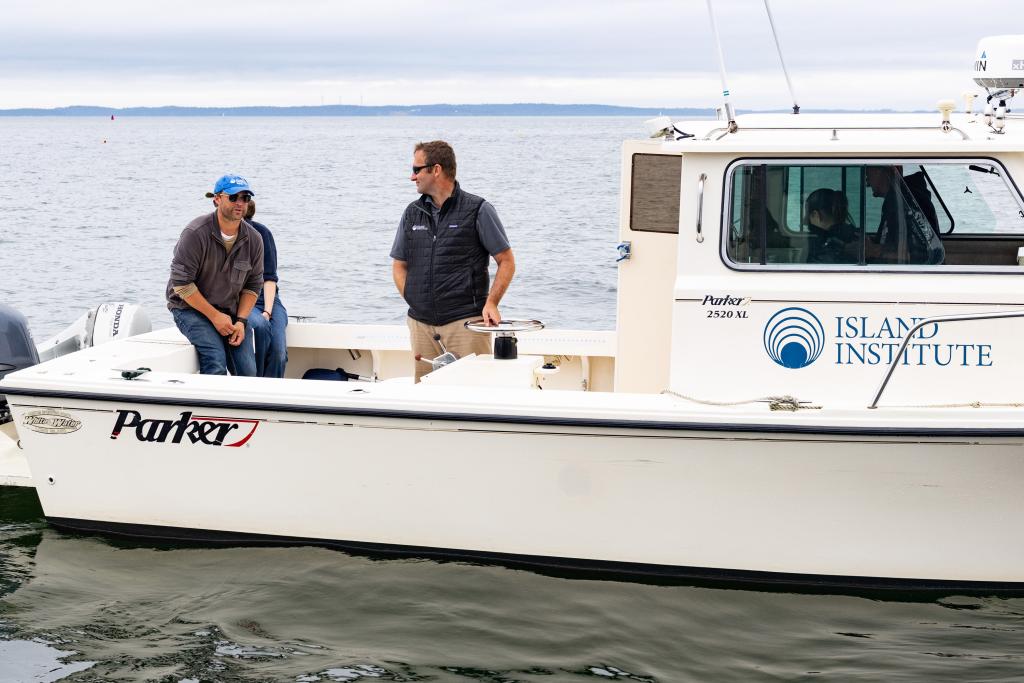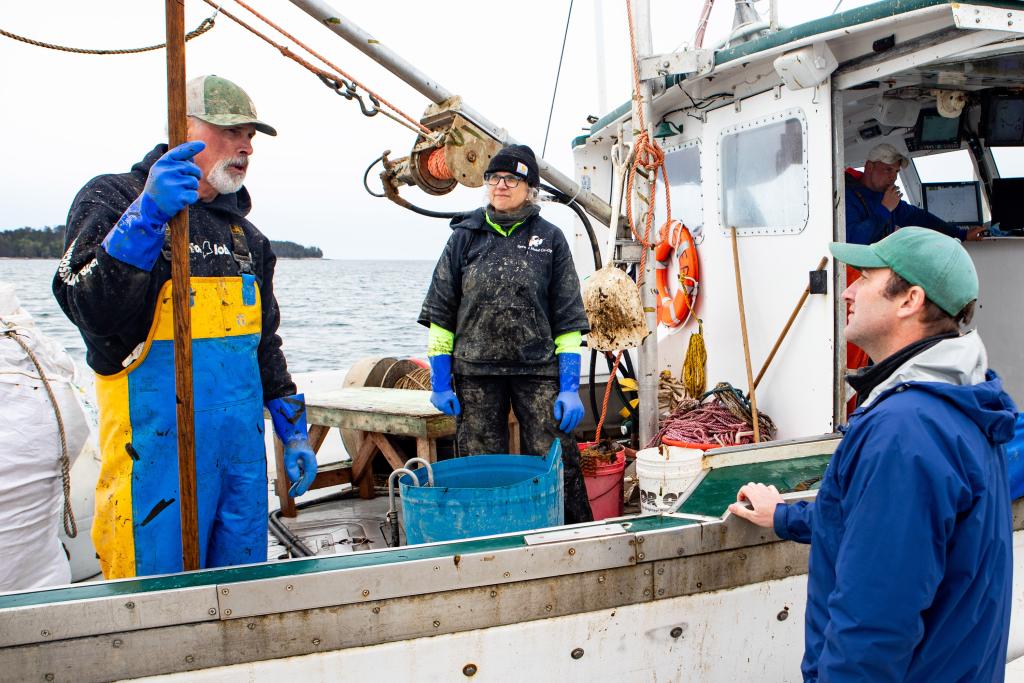Utilizing Legal Expertise to Positively Impact Coastal Communities

Nick Battista, RWU Law Class of 2008
Juris DoctorFor most of us, there are times in school when we question the relevance of what we are learning and we feel unsure about how we’ll apply our education toward our big-picture goals. After we graduate, we forget all about certain lessons and classes because we don’t see the need for them in our daily lives and careers. But that is not the case with Nick Battista, who is quick to connect the success he’s having now with all he learned at Roger Williams University School of Law—success that has helped him to have a significant impact on the vulnerable communities of Maine.
As Chief Policy Officer at the Island Institute, a nonprofit community development agency in Maine, Battista is committed to working for, and with, the state’s many island and coastal communities, most of which are sitting on the front lines of climate change. The institute’s most obvious challenges are concerning rising sea-levels—and preparing vulnerable communities to deal with the results of that phenomenon—but it also handles countless other initiatives that have a significant impact on Maine’s coastal communities, such as changes to the lobster market, monitoring the Gulf of Maine, and obtaining broadband internet for rural areas, just to name a few.
To say that his Roger Williams University School of Law degree has helped Battista in these endeavors would be an understatement. “A legal education has been very helpful in so many aspects of what I do,” explains Battista. “I can expertly navigate statutes and regulatory bodies. I understand administrative process and procedures and the public processes. I deal with lobbyists; I review and draft legislation."
"Because of the knowledge I gained at RWU Law, I am able to grasp the various elements of what my job requires, as well as see how all of those elements fit together."
A native of Maine, Battista had long been passionate about the state of both human and marine affairs in his home state. After studying the marine science in graduate school, he decided that he’d rather focus more on public affairs than science. That realization sent him to RWU Law, where he learned about things that would be of obvious help to him in his desired career (public policy, regulation, negotiation, mediation, interpersonal skills, and how to recognize fact patterns). Says Battista, “One of the classes I had at RWU Law was a mediation class that was helpful in learning how to approach all different sorts of negotiations. I can be as strident as I want on a particular issue, but if I can’t help the people who are making decisions about that issue understand the perspective of the people I work for, I’m not going to be successful.” 
But Battista studied areas that he did not imagine would play such a large role in his current success, including tax law and business. “I do not practice tax or business law,” explains Battista, “But a key aspect of my job is collaborating with local businesses, be it to obtain feedback, funding, or cooperation. Being able to grasp the potential tax implications of a potential action or policy and communicate about it with local business owners is invaluable to building relationships and credibility.”
As a seasoned policy professional, Battista now realizes how valuable a broad, holistic knowledge base is when working in any kind of public affairs. He’s grateful for his education and that he didn’t discount any aspect of it as irrelevant; he kept his eyes and ears open. This approach is indispensable when working with small communities and always trying to understand and advocate for their perspective.
In the past couple of years at the Island Institute, Battista has focused on two areas that he views as critical to the future survival of Maine’s coastal communities. First, he’s been deeply involved in developing Maine’s climate action plan and advocating on behalf of rural communities in the creation of that plan. Critical to achieving success in this work is Battista’s ability to interact with community partners and translate their wants and concerns into effective advocacy at the state and policy levels. 
Battista’s other area of focus has been the installation of broadband internet throughout rural areas of Maine. Maine is the most rural of the country’s lower 48 states, and it has many communities where internet service is poor. For the past five years, Battista has been building coalitions and advocating for funding for adding broadband across Maine. Since 2019, he chaired the state’s quasi-public agency dedicated to broadband and was able to drastically ramp up the agency’s funding from $1 million per year to $50 million per year. In addition to raising money, Battista and his colleagues created a new agency to oversee all federal money related to broadband and made sure that the new agency had the institutional strength and capabilities to manage those funds.
For Battista and his colleagues at the Island Institute, their work is not just about what’s happening with climate change and high-speed internet. The institute is equally committed to helping people understand the connections between these different issues and what that means for communities. “We want these communities to continue to be great places for people to live and work,” says Battista. “We have to help people understand how to be good neighbors and good citizens, and to help them understand what is required by law. For me, for where I am, I feel like it’s going to take all the things I learned in law school and throughout my career to help me be in a position where the Island Institute is able to help communities respond to climate change and other massive challenges and get ahead of them.”
